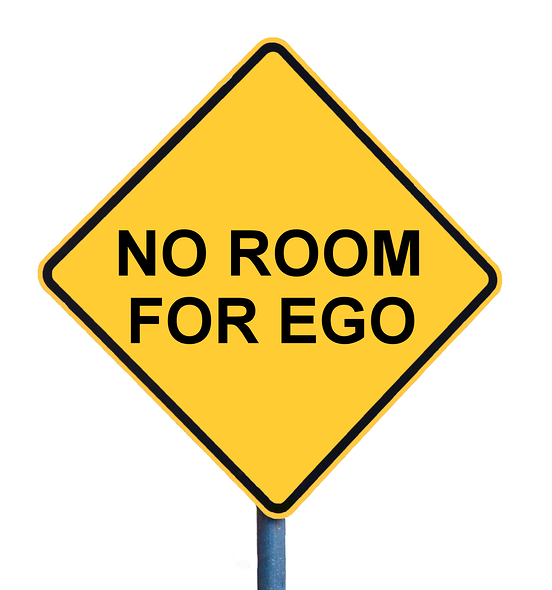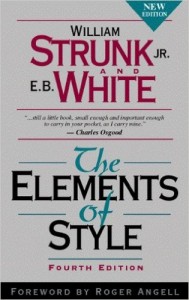
10 tips on writing from Alexander Green
Last fall I had the pleasure of attending the AWAI 2016 Bootcamp in southern Florida.
What a fantastic event!
What’s not to like about a meet-up of 450 writers in an ocean-side town that has October temperatures reaching almost 90 degrees?
And what a powerful opening keynote by Alexander Green who provided many inspiring tips on writing.

If you’ve never heard of him, Green is a financial copywriter and author of four best-selling books.
This post contains a quick recap of Green’s talk. You can watch his entire keynote here, starting at 5:10.
I found everything Green said about “copywriting” applies just as well to white papers.
So don’t get hung up on that term.
The 3 keys to good writing
“Copywriting isn’t simple, but it is a craft that can be learned,” Green said.
[Tweet “Copywriting isn’t simple but it’s a craft that can be learned.”]
“You don’t have to be a journalism major, or someone who took nothing but English classes in college, or a straight-A student or a Rhodes scholar,” he noted. “That’s simply not the case.”
To succeed as a writer, he said, you just need to do three important things:
- Think clearly
- Write plainly
- Argue persuasively
Then Green went on to provide 10 writing tips for anyone who wants to be a successful copywriter.
Writing tip #1: Write, write, and write
“You’re not a writer if you’re talking about writing, networking about writing, sharpening pencils, shopping for a laptop, doing research on the internet…”
To be a writer, you must write. Preferably every day.
“I suggest you write 1,500 words of finished copy every day. That’s about two pages, single-spaced,” he advised.
“You may ask, ‘What am I going to write about?’
“Make it a persuasive essay. Write about the best movie you ever saw. The most fantastic trip you ever took. The most beautiful woman you ever met.
“And don’t use the words ‘great’ or ‘fantastic’ or ‘beautiful.’ Go into all the details and persuade someone that it really was the best.”
I love this! As you know, I’ve defined white papers as “persuasive essays” for many years. So I heartily concur with this advice.—GG
Writing tip #2: Check your ego
“You’re not writing for the Pulitzer prize or the National Book Award. You’re writing a piece of marketing copy,” he noted.
“The idea when you’re writing copy is not to draw attention to yourself, to your own words. The writing is just the vehicle for getting across the idea.

“You’re a hired gun, like a lawyer who takes on a client.
“Your job is to see things from your client’s point-of-view and argue the best case you can possibly make.”
Right on. As you know, I often say that to write an effective white paper you must “think like a lawyer, and write like a journalist.“—GG
Writing tip #3: Believe what you’re writing
“No matter who you’re working for, you have to be sold on whatever you’re selling, or you won’t be able to transfer any emotion to it,” said Green.
“I suggest that you not take on any projects where you don’t see the benefits or the value in it yourself.”
He said you should be skeptical. Ask a ton of questions until you’re satisfied with the answers.
Unless you believe in what you’re writing about, you won’t do your best work.
This is why I turn down projects on things I don’t believe in, like say, online gambling. You should too. Only write about things you believe add something worthwhile to the world.—GG
Writing tip #4: Strive for pitch-perfect tone
Copywriting has to be credible and exciting. And you have to walk a fine line.
“If it’s so credible that it’s not exciting, that’s not good. If it’s so exciting that it’s not credible, that’s not good,” said Green.
“You really have to develop perfect pitch, so that you’re using the right diction, the right phrases, and the right arguments for your audience.”
Green also pointed out the problem of “warming up” or “throat-clearing” in your copy.
These are the dull introductory sentences most of us write when we’re just getting started. That’s okay, but make sure to delete them during your rewrite.
“You have to get right into the action, get all the good stuff right up front,” he said. “Don’t think you can keep the good stuff until page 8 or 9. Your headline and first couple of pages have to be really good.”
Remember, your prospect is always looking for a reason to stop reading, he says. If you bore them for one instant, or say one thing they don’t agree with, they’re gone.
To keep your readers engaged, keep every sentence moving and strike the right tone.
This echoes something I’ve always said about white papers: They are a combination of writing to explain and writing to persuade. They require a nuanced tone, with no fluff and no filler.—GG
Writing tip #5: Writing is rewriting
 “As a writer, the Delete key is your best friend,” said Green.
“As a writer, the Delete key is your best friend,” said Green.
As many writers have noted, the best way to work is to steep yourself in your subject, and do intensive research to collect your key points.
When you start to write, get a first draft down quickly. And then, polish it over and over.
“Almost like polishing a stone, every time you go through it gets better,” he said. “And your 17th draft will be better than your 16th.”
How do you know when you’re done?
“Writing is a craft, and the people mentoring you will tell you when it’s ready to turn in.”
More on that in the following tip.
Writing tip #6: Don’t re-invent the wheel
“Copywriting is formulaic,” Green said. “Stick to the proven formulas for success, and you’ll have a better chance of succeeding.”
The same applies to white papers or any other type of document.
“You want to go through and make sure you have all the elements of a good package.”
But how can you know that?
“You want to be mentored by somebody. You want to be apprenticed to a master copywriter.
“You don’t want to turn in finished copy that hasn’t been looked at by somebody who can tell you, ‘It needs more of this, and less of that.'”
Ideally, you want to work with someone willing to invest the time to train you.
And at least you need to commit to your own training by reading books, taking courses, and going to industry events.
Doing all that makes it more likely for a potential mentor to believe in you and take you on.—GG
Writing tip #7: Make a $5 investment
If you don’t already own it, get The Elements of Style. Green calls this “104 pages of solid gold.” I concur.
You can see my piece on this book here, or view my presentation on it in the AWAI’s Great Books club here.
I think every writer should have a copy of Strunk & White’s little book within easy reach on their desk.
And we all should flip through it often for a quick refresher on how to write plainly. I think it costs $10 now: what a bargain!—GG
Writing tip #8: Prioritize your day
Get up and do the most important thing first, suggests Green.
He tells a story about procrastinating on writing his first book. Even though he got a $50,000 advance, he had trouble getting started on it. He had to ask his publisher for an extension.
Then he procrastinated some more, until his publisher asked for the advance back.
Embarrassed, Green asked his colleague Mark Ford for advice. Ford recommended that he spend the first 30 minutes of every workday on his book.
Green started to do that, getting up earlier some days, putting off other commitments, and turning his thoughts to the book. It quickly started to take shape. And it turned out so well it became a New York Times bestseller.
The moral of the story: Do the most important things first.
If there’s some goal you really want to achieve—like learning how to write white papers—put some time into that every single day.
And eventually, you’ll get there.
Stephen Covey says the same thing. Put the big rocks in first, i.e. make time to do the most important things first, and then fit in everything else.—GG

Writing tip #9: Don’t multi-task
“Everyone who multi-tasks thinks they’re getting two things done at once,” notes Green.
“But they’re not. As a writer, you should be focused like a laser on what you’re writing.”
“If you’re serious about writing, here’s what you have to do: Put a Do Not Disturb sign on the door, turn off the TV, don’t play any music, don’t have your smartphone on your desk.
“Writing is a solitary activity. You need to shut out the world and do what you need to do.”
I agree. Good writing requires 150% focus and concentration.—GG
Writing tip #10: Show, don’t tell
“The secret of A-plus copywriters is they tell a story and let the facts speak for themselves,” said Green.
“If you’re rushing to the thesaurus to find another synonym for ‘great’, ‘fabulous’, ‘outstanding’ or ‘incredible’, you are far off the mark!
“You don’t want to tell people about the product. You want to show them,” he said.
I agree. In a white paper, you want to build an argument with facts and logic, not with empty superlatives and claims about being the best.—GG
And finally, Green said he doesn’t see a big difference between “good, clear writing” for editorial purposes like a book and “good, clear writing” for promotional purposes like a piece of copy… or a white paper.
AWAI Bootcamp rocks!
Green’s keynote was just part of the great lineup of speakers and events at the AWAI Bootcamp 2016.
If you’ve never been to a Bootcamp, I highly recommend it.
Here’s where to find the details about the next Bootcamp.
Even after years in the field, I always come back re-inspired and re-invigorated, with many fresh contacts and a head full of ideas to apply to my writing business.
What do you think of these writing tips? Have you been to the AWAI Bootcamp yourself? What did you think? Please leave your comments below.
Want to hear whenever there’s a fresh article on this site? Subscribe here to stay in the know on long-form content. From time to time, we’ll also send you word about some great new resource or training. And you can unsubscribe any time.





Great article. Sometimes the simplest advice is the best advice